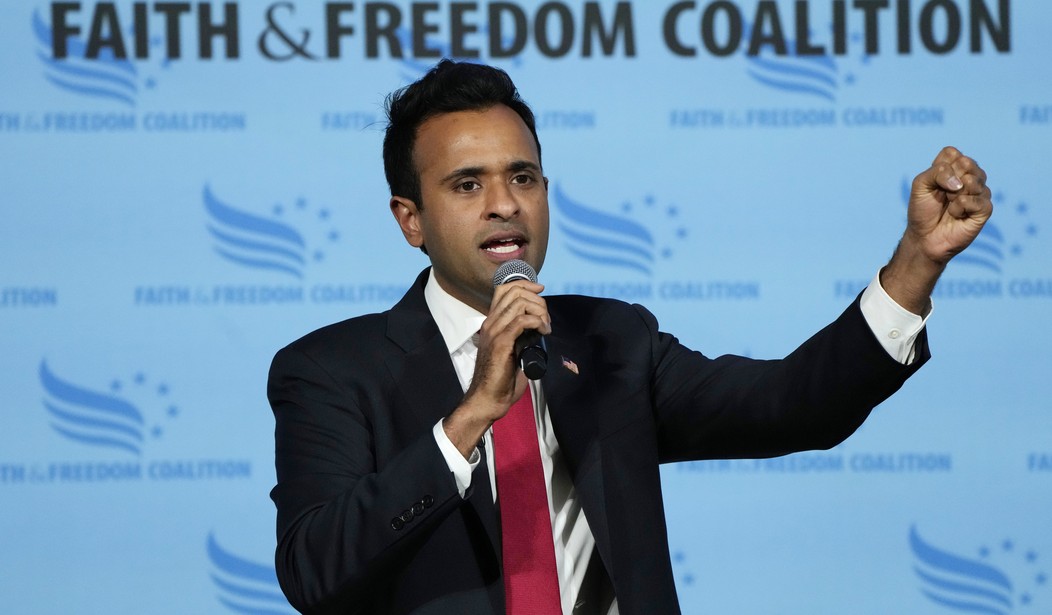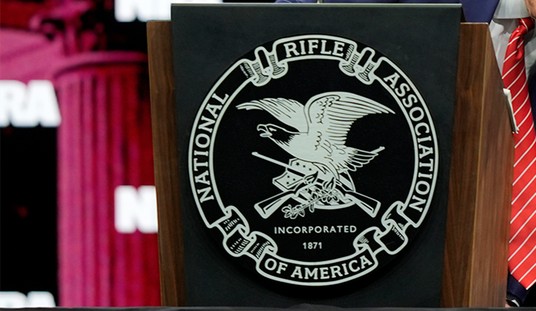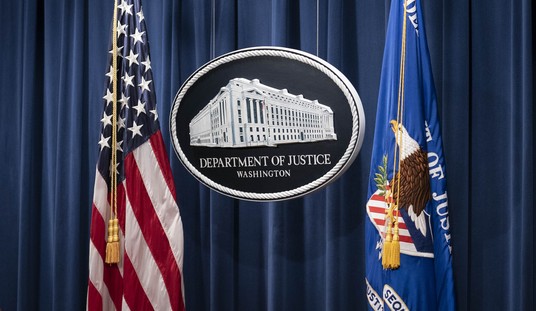Back in the 1960s, car rental company Avis decided to play up its underdog status to larger rival Hertz by embracing the motto “When you’re only number two, you try harder… or else.” It was such a successful campaign that Avis ended up running with it for the next 50 years, and it’s probably embedded on an entire generation of Boomers and Gen Xers who grew up with the ubiquitous slogan and commercials on their TV screens.
Vivek Ramaswamy isn’t the second choice of many Republicans when it comes to the 2024 nomination.. or their first choice either. According to FiveThirtyEight, the tech entrepreneur is the pick of just 3.4% of GOP voters, trailing not only Donald Trump and Ron DeSantis but Mike Pence and Nikki Haley as well (though he’s beating Asa Hutchinson by a wide margin, so at least he has that going for him). When you’re only number five, you try even harder… not just to win over voters but to simply get them to notice you, and Ramaswamy managed to get some attention for himself this week by proclaiming that the voting age should be raised to 25, with exceptions for active duty military, first responders, and those who pass a naturalization test.
“The United States faces a 25% recruitment deficit in the military and just 16% of Gen Z say they’re proud to be American,” Ramaswamy said in a statement. “The absence of national pride is a serious threat to our Republic’s survival.”
“At a time when young Americans are taught to celebrate their differences, Civic Duty Voting — and in particular the service path — creates a sense of shared purpose and experience,” he added.
The conservative entrepreneur notes on his campaign website that while the Constitution prohibits discrimination based on race and gender, it does not “expressly guarantee universal voting.”
“This is intentional: we live in a Constitutional republic, not a direct democracy,” according to the site, which adds, “Voting is a privilege, and civic duty is a proper precondition for enjoying that privilege.”
The proposal would require a constitutional amendment, which Ramaswamy acknowledged represents a “high hurdle.” He also recognized that “not everyone will like this proposal.”
You think? Stripping young adults of their right to vote isn’t gonna make them any prouder of the United States than they are now, and given the unlikelihood of Ramaswamy’s proposal actually going anywhere, the biggest impact that it will have will be to further alienate younger voters from the GOP. It’s an embarrassing suggestion, quite honestly, but it’s also one that flies in the face of recent court decisions that have found age-based gun control laws on young adults to be unconstitutional. If an 18-year-old has the right to buy a handgun and carry it for self-defense, why on earth would they not have the right to walk into a voting booth and cast a ballot for the candidate of their choice?
Or to put it another way; if the average 22-year-old is too irresponsible and lacking in national pride to cast a vote, why does Ramaswamy believe they should they be able to exercise their Second Amendment rights? Actually, I guess the better question is does Ramaswamy believe that under-25s should be able to exercise their right to keep and bear arms, or should that right be limited only to active duty military, first responders, and those that can pass a test?
Calling for young voters to pass a naturalization test before they can vote is a grotesque reminder of the inequalities of the Jim Crow era, when southern Democrats routinely denied black citizens their right to vote by imposing literacy tests that were designed to trip up black applicants. If and when white voters were subjected to the same test, the white registrar could always provide a helpful hint or even denote the right answer, while leaving black to answer questions like “Does enumeration affect the income tax levied on citizens in various states” and “The only laws which can be passed to apply to an area in a federal arsenal are those passed by ______ provided consent for the purchase of the land is given by the _______” on their own.
I don’t know if Ramaswamy was making a desperate ploy for the Boomer vote, just looking to say something outlandish to generate some headlines, or truly expressing his firmly-held belief with his pitch, but whatever his rationale it’s a truly terrible suggestion that’s only going to do more damage to the Republican brand among young voters. Yes, younger generations skew liberal, but that doesn’t mean they stay there.
The first presidential election I was old enough to vote in was 1992, and for the only time in my life I voted for a Democrat. I was an 18-year-old who didn’t care much about politics and thought Clinton would be better because he was younger, hipper, and seemed more down-to-earth than George H.W. Bush. In 1996 I was so tuned out of politics that I didn’t vote at all, but by 2000 I was no longer the apolitical idiot casting a vote based on late night television appearances and saxophone expertise. I was a husband, father, gun owner, and a tax payer; all of which helped to steer my politics and ideology in a more conservative direction.
If Republicans had been running around talking about raising the age to vote to 25, I doubt I would have made the switch, to be honest. Why would I support a political party that wants to disenfranchise me? I don’t think I would have voted Democrat at that point, but I would have either voted Libertarian or (more likely) continued to stay home on Election Day.
Ramaswamy’s idea is both bad politics and bad policy. Declaring Gen Z to be existential political enemies of the GOP is just stupid, and arguing that young adults are too unpatriotic to vote is uncomfortably close to the arguments of anti-gunners that the same age group is too dangerous and impulsive to own guns.
Here’s a bit of unsolicited advice for Ramaswamy: if you’re looking for attention don’t try to make a name for yourself by trying to restrict any of our rights, but by trying to conserve all of them; from the right to vote to our freedom of speech to our right to keep and bear arms.









